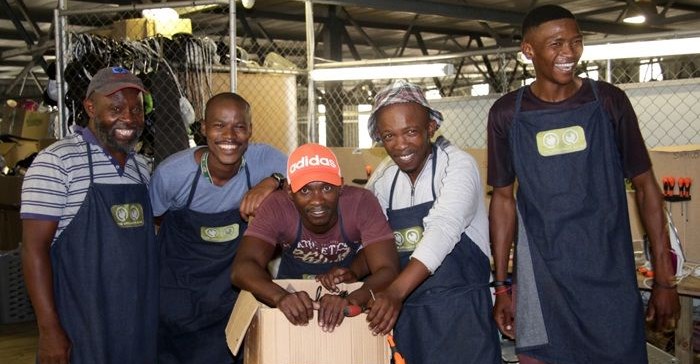
Since its establishment in 2010, The Clothing Bank (TCB) has helped more than 2,000 women - mostly mothers - become self-employed by training, supporting, mentoring and coaching them to establish their own small businesses. TCB partners with South Africa’s largest clothing retailers that donate their excess stock, customer returns, end of season and bulk rejections, to the organisation.
Every year TCB’s five branches around the country select 800 women to enter the two-year programme. These women buy this stock at greatly discounted prices from TCB and sell it in their communities. They are supported by more than 1,000 hours of workshops on life, business and personal finance skills as well as computer training, personal coaching and business mentoring. Over the last seven years these small business owners have collectively made over R83 million in profits.
The Appliance Bank (TAB) works on the same model. It’s aimed at men, mostly fathers, and uses damaged or broken small household appliances that retailers, such as the Clicks Group, donate to the programme. The men are taught to fix the appliances and then sell them in their communities. They are also supported with the business mentoring, personal coaching and business, life and financial skills workshops that have proven so beneficial in the women’s programme.
TAB piloted in Cape Town in 2015, and thanks to encouraging results has been rolled out in Johannesburg and Durban. There are currently 50 men on the programme. Collectively these men have purchased goods to the value of R600,000 since September 2016, which means they have conservatively earned in excess of R1.8 million in profit over the past year. TAB hopes to expand this model to accommodate 200 men by 2021. To do so they need more donated stock and appeal to retailers to pass on their broken and damaged goods.
Tracey Gilmore, co-founder of TCB, said they initially aimed their programme at women as statistics show a shocking 68% of SA women with children under two are single (never married and not living with a partner). And that an astonishing 50% of fathers provide no financial or emotional support whatsoever to their children. Many children born to single mothers are living in dire poverty, totally reliant on the meagre R360/month per child state grant. Women are also likely to spend their money on food, education and clothing for their children.
Gilmore said: “Working closely with mothers for all these years, we have witnessed the profound and widespread devastation the epidemic of gender-based violence continues to inflict on families. We believe that we must take a disruptive approach and include men in our vision by restoring their dignity and equipping them with the tools they need to become role models and pillars of strength in their communities.”